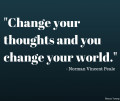Biphasic Sleep – Makes You Smarter!
The Light Bulb Is Credited for Creating Insomnia
In my hub titled, “Why Can't I Sleep? What Is Normal Sleep? Segmented Sleep Patterns,” I wrote about the history of human sleep patterns and how segmented or biphasic sleep had been normal and natural for 18 centuries – and then the light bulb was invented.
After the light bulb became common, people started forcing themselves, or trying to force themselves, to sleep in 8-hour stretches. Some people have been more successful at that endeavor than others.
Most notably, an entire new industry was created over time to respond to all the people who could not, and cannot conform to the new monophasic 8-hour sleep pattern, and who are now often labeled as having sleep disorders!

Recent Brain Research Shows Advantages To Biphasic Sleep Pattern
According to Psychology Today magazine, research from the University of California at Berkeley shows that people who get just an hour nap in the afternoon, or after being awake for several hours, increase their brainpower, refresh their minds, and increase alertness. In fact, taking naps makes a person smarter. Smarter, meaning that people who nap improve their ability to learn new things and understand directions or new concepts.
By the same token, the longer people are awake, the more sluggish their minds become. Staying awake for very long periods, such as college students might do to cram for an exam, actually diminishes the brain’s ability to learn by a whopping 40%!!
In fact studying for 45 minutes to an hour and then having a short nap has been shown to benefit both learning and retention of new material.
Society Invents New Social Patterns Over Time
Modern humans want to think that the 8-hour monophasic sleep pattern is normal and that biphasic sleep patterns are not, mainly because no one alive today can remember when everyone’s sleep patterns were biphasic for centuries.
What will happen in a couple of generations when no one can remember anyone who could write in cursive because our schools have stopped teaching cursive writing? In a couple of generations will anyone remember that people used to be able to do basic math with a pencil and paper using their own brain instead of a calculator?
Even now, more and more people are refusing to learn how to do the simplest things, like cooking and sewing.
The above examples are presented in order to show how things that were once considered basic skills are being lost, and that as technology improves and changes modern lifestyles, humans are losing as much as they are gaining.
Our Lifestyles Have Changed But Our Bodies Have Not
Sleep therapist, Dr. Rubin Naiman writes, “In fact, napping can provide amazing health benefits. It lowers diastolic blood pressure, improves mood, improves work and school performance (bosses and educators take note_ and helps readjust our nighttime sleep patterns back to the way our ancestors slept before the Industrial Age and, according to some experts, the way our bodies were designed to sleep at night.”
It would seem that technology, while improving our lives in many ways, is adding stress to our lives in many other ways. While we may appreciate and enjoy the improvements, the disadvantages that are adding stress to our lives are killing us. Our minds are enjoying the pluses, but our bodies are crying out for relief because they cannot adjust so quickly.
In fact, the light bulb was invented by Thomas Edison in 1879, about 133 years ago. Many people born several years since then have bodies that still seem not to be able to modify themselves to the change in lifestyle that the light bulb ushered in. Could it be that the necessary sleep patterns are hardwired into humans and that trying to change them will only bring health problems and a shorter lifespan? Would it make more sense to make technology adapt to us rather than us forcing ourselves to adapt to it?
Sources:
Veracity, Dani. “Sleep therapist Dr. Rubin Naiman explains the true causes of sleep disorders, caffeine cravings and sleep hormone imbalances.” NaturalNews.Com. 16 January 2006. n. page. Online. Internet March 18, 2012. Available http://www.naturalnews.com/016768.html
Williams, Ray B. “Wired For Success.” Psychology Today. 14 March 2010. n.page. Online. Internet March 18, 2012. Available http://www.psychologytoday.com/blog/wired-success/201003/how-biphasic-sleep-schedule-can-make-you-smarter
Winkler, Kirsten. “Segmented Sleep or How Society invents Social Patterns.” 2 March 2012. n. page. Online. Internet March 18, 2012. Available http://www.kirstenwinkler.com/segmented-sleep-or-how-society-invents-social-patterns/



